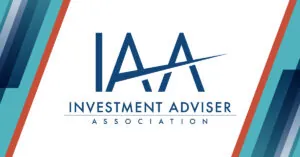This website uses cookies so that we can provide you with the best user experience possible. Cookie information is stored in your browser and performs functions such as recognising you when you return to our website and helping our team to understand which sections of the website you find most interesting and useful.
Sharpe’s Arithmetic Doesn’t Add Up
January 19, 2023
William F. Sharpe’s “arithmetic of active management” is simple. His proposition, first published in 1991, argues that the average active investor is doomed to underperform after taking costs into account.
Simple, yes. But is it accurate?
Not necessarily, says Geoff Warren, who takes a close look at Sharpe’s proposition and the research supporting it in his 2010 paper, “Is Active Investing Doomed as a Negative Sum Game? A Critical Review.”
“Sharpe’s logic is seductive,” notes Warren. If all investors combined earn the market return before paying fees, all investors who pay fees – in other words, all active investors – will, combined, earn less than the market after paying fees.
Yet while Sharpe’s proposition may be appealing, its logic doesn’t stand up to scrutiny. Sharpe’s argument suggests that all investors would be better off using a passive approach. But a market with 100% passive investors would be unsustainable. With no active managers researching investment merit, security prices would often deviate significantly from underlying values. These mispricings would create opportunities for profit that would encourage some investors to “go active” and move their portfolios away from index weightings.
Warren contrasts the Sharpe proposition with the more realistic model that Grossman and Stiglitz propose in their 1980 paper, “On the impossibility of informationally efficient markets.” In the Grossman-Stiglitz equilibrium, active investors earn higher returns than passive investors, but those higher returns only offset the costs of earning those higher returns (such as research and trading costs). Put different, in a Grossman-Stiglitz world, active and passive investors necessarily coexist.
And there’s empirical support for the Grossman-Stiglitz model, Warren explains. In their 2015 and 2016 studies of U.S. equity funds, Berk and von Binsbergen find net returns are not statistically significant. A 2019 study by Leippold and Rueegg which looks at all mutual fund categories reaches a similar conclusion: that active funds outperform passive funds in aggregate before fees, but achieve an aggregate net return of close to zero after fees are factored in. In sum, these studies support the Grossman-Stiglitz hypothesis.
But what about all the evidence that “active management underperforms”? Warren points out the limitations of this evidence. He notes that this research tends to:
- Focus on average returns for a subset of managers, while Sharpe’s proposition applies to all active investors in aggregate (i.e., asset weighted returns).
- Use benchmarks that don’t reflect investment costs or don’t represent an investible alternative.
- Use a standardized fee level that may not apply to all investors.
Warren identifies two themes from his review of the evidence:
- “It is wrong to form the general conclusion that there is clear academic evidence that active managers do not create value for investors on average.”
- “Studying the net performance of the average active manager should not be taken as a direct test of Sharpe’s proposition.”
Instead, Warren suggests that there are “meaningful openings” for active investors to outperform as a group. He concludes that the choice of active or passive – or a combination of the two – should depend on the circumstances of the investor – not on the faulty arithmetic of Sharpe’s proposition.
Interested in the details of Warren’s argument? He has posted a synopsis online, that includes links to the complete paper.


